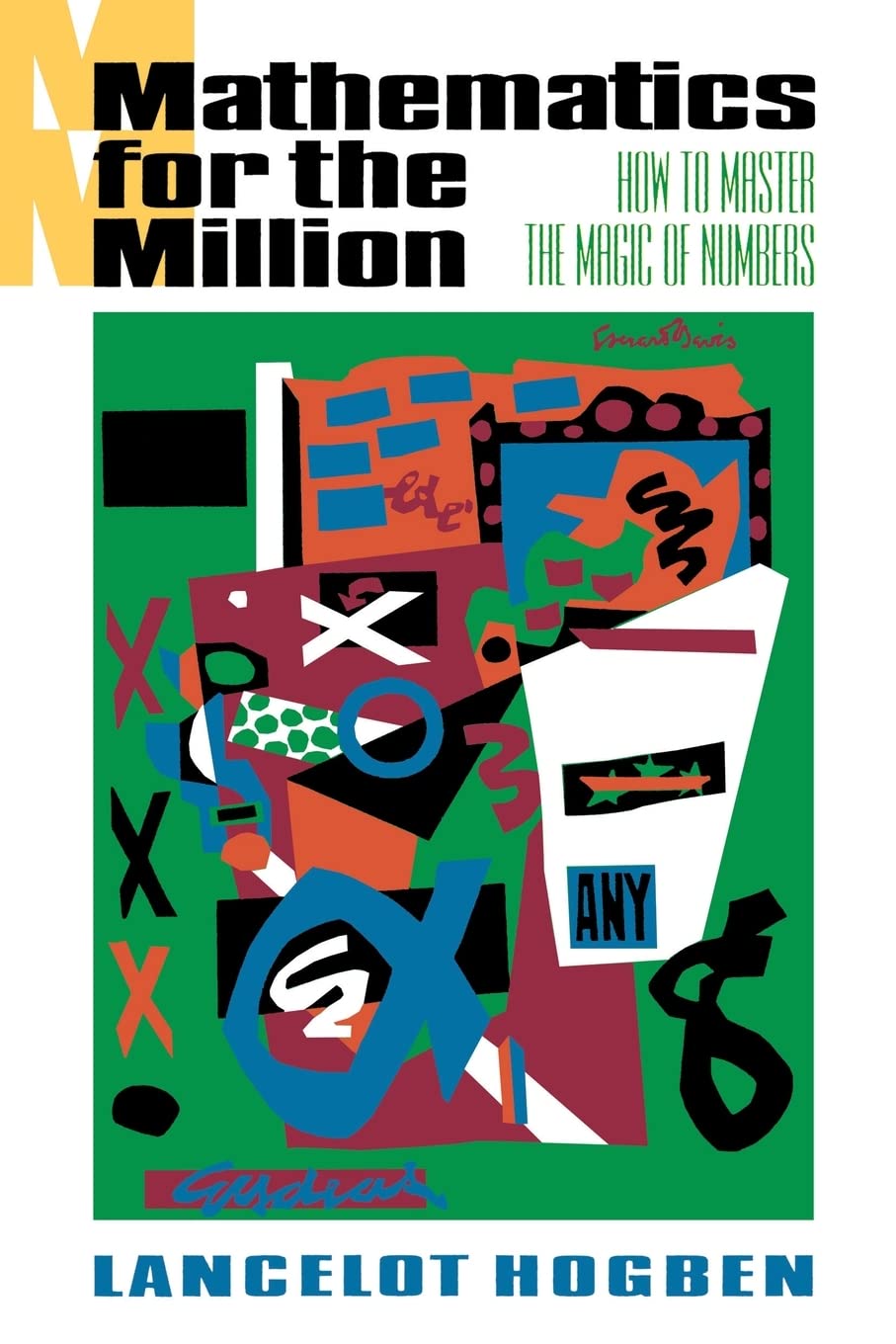Found in 2 comments on Hacker News
spc476 · 2014-12-04
· Original
thread
I found "Mathematics for the Millions" (http://www.amazon.com/Mathematics-Million-Master-Magic-Numbe...) to be a very interesting read. It goes through the history of math, how it was discovered and used, from ancient Egypt (geometry) to the 1600s (Calculus) and shows the progression of thought.
davidjhall · 2014-04-13
· Original
thread
I'm surprised no one has mention Mathematics for the Millions by Lancelot Hogben. http://www.amazon.com/Mathematics-Million-Master-Magic-Numbe...
He takes the approach of starting right at the beginning of human history when we first came to look at the stars and seasons and try to understand why they work, and then builds the math knowledge with each lesson. Excellent book!

